We know what a great painting looks like while we are looking at one. Turning away, we don't exactly forget, but our recall of the experience--how we felt, looking--starts to edit what we saw. Some details and qualities are magnified; others evanesce. With time, the picture becomes more ours and less the painter's. My several visits to the best painting in the world, Velázquez's "Las Meninas" (1656), at the Prado, instruct me in the phenomenon. My first reaction is always disappointment at the coarse, almost drab, handmadeness of the big (but smaller than I thought) canvas, the absence of a glamour that I have cherished in memory and may have refreshed by contemplating glossy reproductions. (Reproductions are pandering ghosts; they tell us what we like to believe.) Then, rather abruptly, I find myself under Velázquez's spell again, as if I had never been before--pitying the fool that I must have been when I last viewed the work. This time I get it! But will I keep it? Not a chance.And the paragraph continues. (I love that bit about reproductions as "pandering ghosts.") Later, Schjeldahl curses his "memory's fecklessness" when describing a painting he loves by Francisco de Zurbarán, “Still Life with Lemons, Oranges and a Rose” (1633). This article came to me at an interesting time, as I've been reading--partly for pleasure, partly for a paper I'm to present at a conference next week--Robert Hass's book Time and Materials. I had heard Hass read some of the work in this book five years ago in Lake Tahoe, including a powerful poem called "The World as Will and Representation," a title taken from the philosopher Arthur Schopenhauer. After I heard him read it, I said to the people I was with, who also wrote poetry, "Who are we kidding? We're not poets!" What stuck with me was the poem's final image, of an alcoholic mother drinking and gagging, and of an ending address to the audience (that seemed very wise but in my memory lost all definition) that this image occassioned. Mostly what I kept was a feeling that I had experienced something beautiful and emotionally true.
When I came back to the poem last week, I felt something similar to what Schjeldahl describes, that the work was flatter than I remember, perhaps literally so: seeing it on the page seemed to rob some of its magic. But reading it aloud a couple times, navigating my voice across its sentences and lines, I felt rising in me something Schjeldahl also describes: "This time I get it!" (You can listen to Hass read the poem here. Scroll down to February 21, 2008. The poem is roughly at the 28-minute mark.)
This has been a recurring experience of mine, where my memory seems to threaten to undo--or actually undoes--whatever at-the-time valuable experience my reading seems to be leading me through. Close the book, and what remains for me is a feeling, perhaps vaguely outlined, but the details, or some of the best sentences, remain locked away until time and opportunity affords me a chance to open its pages again. This may be a product of unsystematic reading, or a weakness of memory, or of simply being human. Contextualization may help. The final paragraph of Schjeldahl's essay, like the first, offers a remarkable series of insights into the way paintings (or texts?) are arranged within a collection. The Frick's collection, in New York City, Schjeldahl characterizes by its "relative quietude, propriety, and subtlety," expressed mostly in portraiture and landscape. (He uses these words to describe the originator of the collection, Henry Clay Frick, whose sensibilities mark the paintings found there.) The Norton Simon paintings, on the other hand, are brasher, more emotional and sensual. Schjeldahl says that these paintings "are not made altogether welcome [in the New York museum]. I fancied an irritable shudder in the Frick's sensitively indefinite Chardin, 'Still Life with Plums' (c. 1730), at the blazing Zurbarán's sudden proximity." The paintings themselves talk to--or at least turn up their noses at--each other! Listening to conversations like this may help us remember what we've forgotton.
[Awkwardly pious aside: The problem of memory is not limited to reading literature or looking at paintings. Seeing the news this morning, on the heels of weeks of troubling events, both financial and violent--sometimes both--one can't help feeling there's simply too much to remember, too much or too many to feel responsibility for. (I'm thinking here of Alyosha's notion--from The Brothers Karamasov--of responsibility.) What to do when faced with such overwhelming information, including the usual, recurring crises closer to home? I may write things I take to be poetry, but I can only hope that my inarticulate human speech is translated into something beyond utterance.]







































































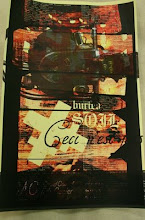


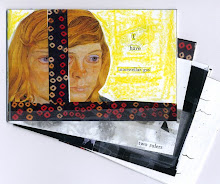
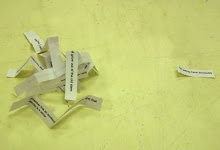
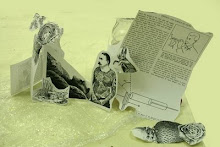

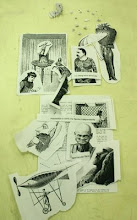
No comments:
Post a Comment